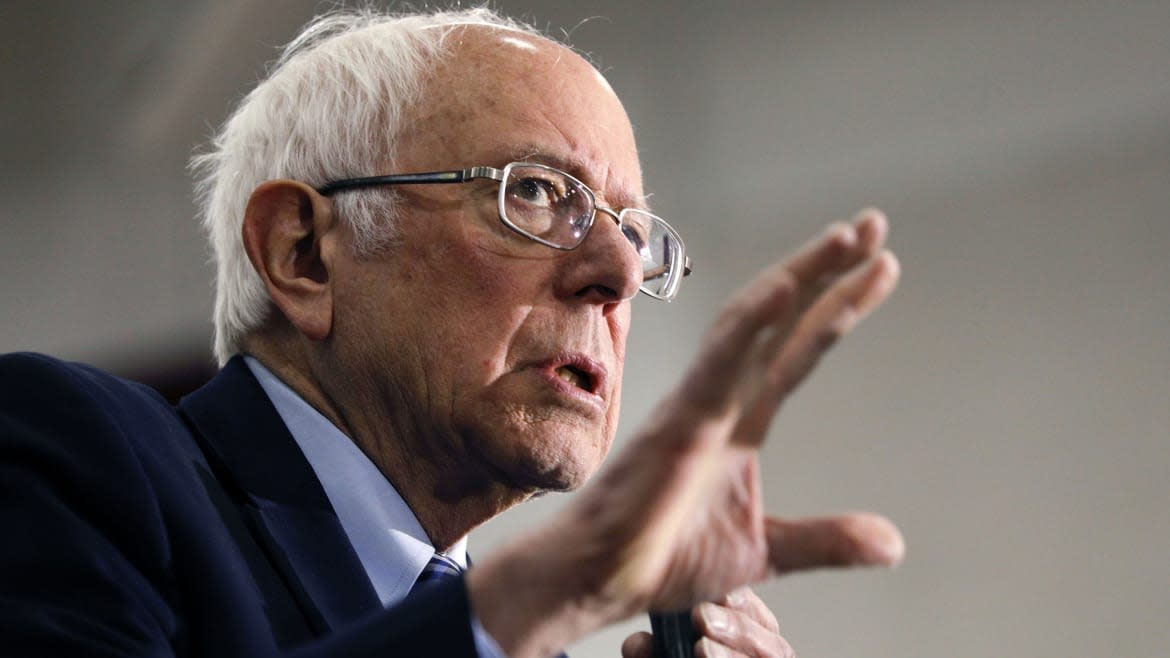Dems Urged Not to ‘Waste a Second’ Negotiating as Republicans Back Away From COVID Relief

Democrats are facing new objections from Republicans over the Biden administration’s COVID-19 relief package, a maddening reality that has set off alarm bells among progressives who fear hard-fought issues could be left on the chopping block.
While President Joe Biden has long touted a working ability to inspire bipartisanship, some on the party’s left wing are already warning against spending too much time trying to negotiate with the GOP, citing double control in the House and Senate and playing up the importance of providing fast monetary relief to Americans during the pandemic.
“Democrats need to just plow ahead,” said Larry Cohen, chairman of Our Revolution, a grassroots network that supported Sen. Bernie Sanders’ (I-VT) presidential bids. “It’s great if [Sen. Marco] Rubio (R-FL) and others who made noises show that we can build a broader coalition on critical issues, but it can’t wait.”
“People want to vote against it? Good, they’re on the record,” he scoffed.
Just days into Biden’s first term, progressives fear that in order to get an urgent coronavirus bill passed with adequate Republican support Democrats may have to compromise on key economic issues, like raising the federal minimum wage. On Friday, Biden signed an executive order that granted federal workers a $15 per hour guarantee, but to extend that figure to the broader workforce would have to move through Congress.
While running for president, Biden indicated that it was “long past time” to adopt a uniform $15 minimum wage. His stance moved in alignment with other Democrats who formally championed that baseline following Sanders’ campaign in 2015.
During the earliest days of his administration, the president included the wage increase as part of his $1.9 trillion stimulus plan, a move that Democrats celebrated as a way to help workers on top of the additional $1,400 proposed relief check. Unlike the one-time check, activists on the left view the minimum wage hike as part of fulfilling a longer-term commitment to economic justice.
Congressional Republicans, however, started to express displeasure more intensely this week towards Biden’s overall proposed package, which would ultimately require 60 votes in the Senate to pass and could be a time-consuming endeavor.
“Republicans have no incentive to cooperate,” said Joe Dinkin, national campaigns director at the Working Families Party. “Democrats shouldn’t waste a second or make a single concession to the party of Trump and billionaires and seditionists in trying to pass relief and recovery for every American.”
One top GOP official, Minority Whip John Thune (R-SD), signaled earlier this week that he doesn’t believe the proposal will pass in its current form, effectively granting permission for other Republican members to follow his skepticism and push for conservative changes. Sen. Susan Collins (R-ME) seemed to follow suit, wondering aloud why that high of a figure would be necessary after Republicans already passed a relief package while President Donald Trump was in office.
With GOP resistance now increasingly evident, some on the left fear that moderate Democrats may be tempted to compromise at the expense of the progressive causes they’ve championed for years. Former Labor Secretary Robert Reich called Biden vying for Republican support a “waste of time, energy, and credibility” and predicted that “he won’t get any.”
Anticipating a still-tense atmosphere in Washington unlikely to change drastically in the coming weeks, pro-worker activists like Reich are encouraging Democrats to move forward with budget reconciliation, which would enable them to pass the bill without support from the opposing party, using Vice President Kamala Harris as a critical tie-breaker.
“No rules are being broken. It’s a legal, legitimate process,” said Randy Bryce, a prominent union worker in Wisconsin, who launched a longshot bid against former Speaker Paul Ryan (R-WI) in 2018. “Let’s get the votes however we can and show who’s in favor of helping American workers and who’s opposed to it. Let’s get a written document.”
Bryce, who was endorsed by Sanders, shared a similar tone to the populist senator who argued that Democrats need to use other means at their disposal if Republicans don’t follow their lead over something that they believe should be fundamentally bi-partisan.
“The Senate’s 60-vote threshold to pass major legislation has become an excuse for inaction,” Sanders wrote in a CNN op-ed earlier in the week explaining the budget reconciliation method. “But let’s be clear: We have the tools to overcome these procedural hurdles.”
He also warned that if Democrats take a more modest approach to the issue, they could face dire electoral ramifications in just two years. With a smaller than expected majority in the House, losing just a few seats could cost the party control of the lower chamber and throw the prospect of furthering a progressive agenda into question.
“Watch the next election repeat 2010,” Cohen said, referencing when Democrats lost the House early into the Obama administration. “That’s what Democrats should be afraid of.”
Watch: What does a Joe Biden presidency in the US mean for the global economy?
Get our top stories in your inbox every day. Sign up now!
Daily Beast Membership: Beast Inside goes deeper on the stories that matter to you. Learn more.

